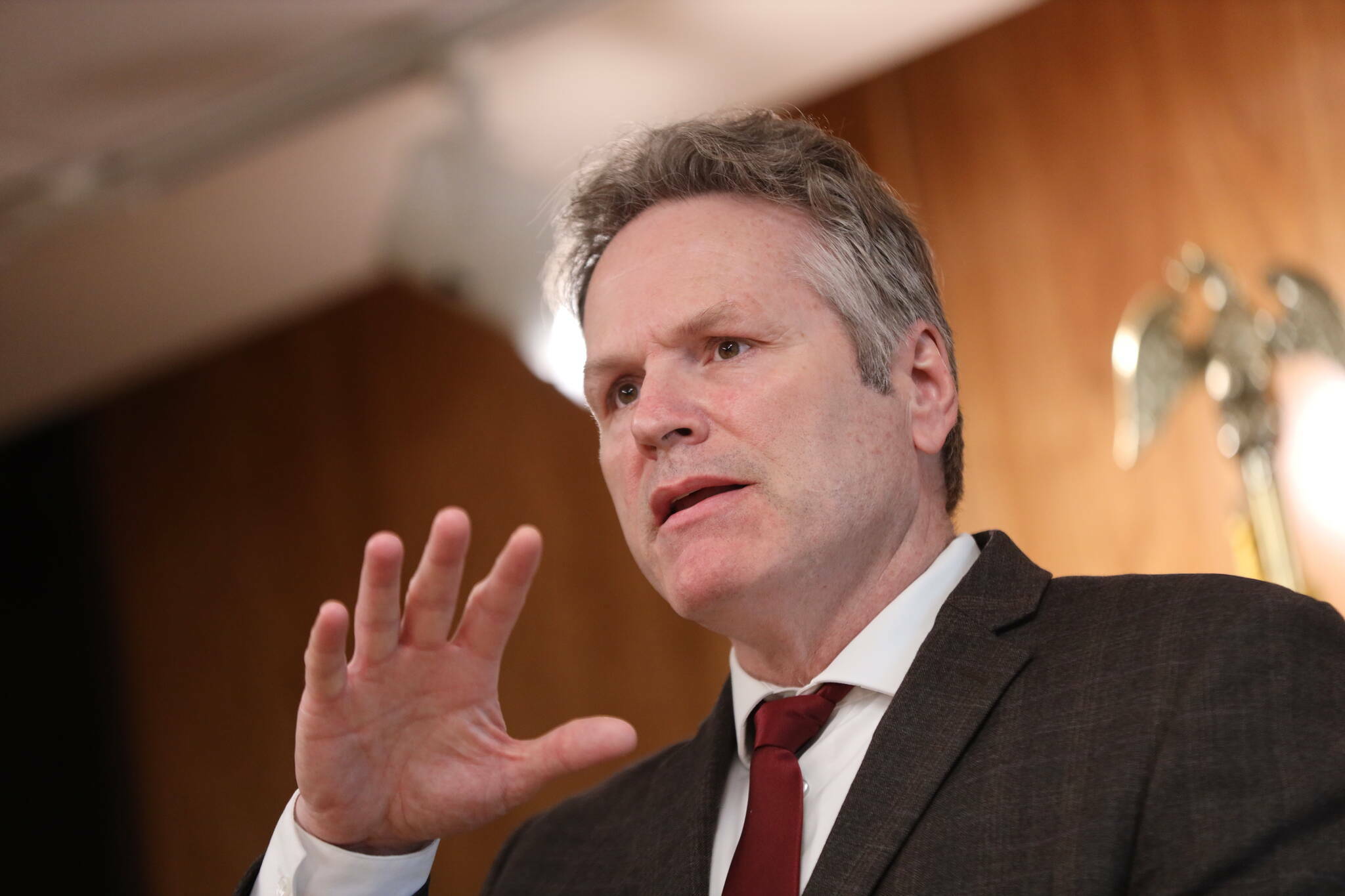The Alaska Permanent Fund dividend Alaskans are set to receive is again a paltry sum compared to what Gov. Mike Dunleavy promised five years ago. And last week he indicated he won’t call a special legislative session to develop a long-term fiscal plan that’s essential to the state’s fiscal future.
Because it would have led the state quickly toward insolvency, we should be grateful that his leadership failed on the PFD side. But his other failure still has us leaning in that direction.
A good starting point to understand Dunleavy’s naïve approach to fiscal management are his PFD campaign promises from 2018. As governor, he would ensure the 1982 statutory formula was used to determine the amount of all future payouts. And he proposed to give $3,678 to every eligible Alaska as back pay for the three years his predecessor and the Legislature reduced the PFD.
Had he been successful in keeping those promises, it would have taken a $7.5 billion bite out of the state treasury between then and now. And if he convinced the Legislature to enshrine the 1982 formula in a constitutional amendment, the budget deficit would be a billion dollars greater every year going forward.
Of course, the money would have come directly from the permanent fund. But although it’s currently worth almost $75 billion, every billion dollars withdrawn from it reduces the annual return on investments by about $50 million.
To address that concern the Legislature passed a law in 2018 that limited annual withdrawals to 5% of its value, with part of it being used to cover about half of the state’s annual spending. But as reported by the Alaska Beacon, an analysis presented to the fund’s board of trustees in July warned that “the spendable portion of the Alaska Permanent Fund is dwindling and could be exhausted entirely within three years.”
That analysis would look much worse if Dunleavy’s plan had succeeded.
It wasn’t the only thing he got wrong. Despite campaigning on being able to balance the budget without significant cuts, he handed an ax to Donna Arduin, an outsider touted as “one of the nation’s most successful veterans of state budget management and tax reform.” The plan she produced would have slashed spending by $1 billion in a single year.
The Legislature rejected that. After they countered with spending cuts just a tenth of that amount, Dunleavy vetoed $400 million. Still, to balance the budget, PFDs were smaller. And they agreed to tap the state’s Constitutional Budget Reserve, which had already been reduced from $10 billion in 2015 to $2 billion.
In December 2021, Dunleavy essentially confessed Arduin’s plan was hopelessly unrealistic. “We’ve done our best to contain the size of government,” he said, even though the spending cuts which weren’t implemented in 2019 had never been resurrected.
There’s further evidence he may be learning from his mistakes. He justified his massive budget veto that year by implying the temporary oil price spike that occurred in October 2018 created a budget shortfall he didn’t anticipate. Last spring, he admitted the budgeting problem posed by the volatility of oil prices. “To simply ride oil in a do-or-die situation for the state of Alaska is folly,” he said.
Not long after that, he told lawmakers they could expect a 2% statewide sales tax proposal from him. It was the final admission that his 2018 balanced budget plan was little more than wishful thinking.
But his tax proposal never materialized, quite possibly because he knew the Legislature had no confidence in his overly simplified fiscal solutions.
However, he’s had one financial decision that did impress them.
Last spring, the duly appointed salary commission proposed a $20,000 raise for the governor and his cabinet. The Legislature almost unanimously rejected it.
So Dunleavy fired the commissioners and immediately appointed new members. With little discussion, and voting to waive a requirement of 20 days’ advance notice of a meeting, they recommended a 67% raise for legislators, who accepted it by failing to pass a bill to block it. And Dunleavy got his raise.
What that illegitimate act and all the budget follies have in common is a lack of honest leadership. And unless a serious Legislature can wrestle the helm away from Dunleavy we can expect the state’s fiscal ship to drift aimlessly for another three years.
• Rich Moniak is a Juneau resident and retired civil engineer with more than 25 years of experience working in the public sector.

